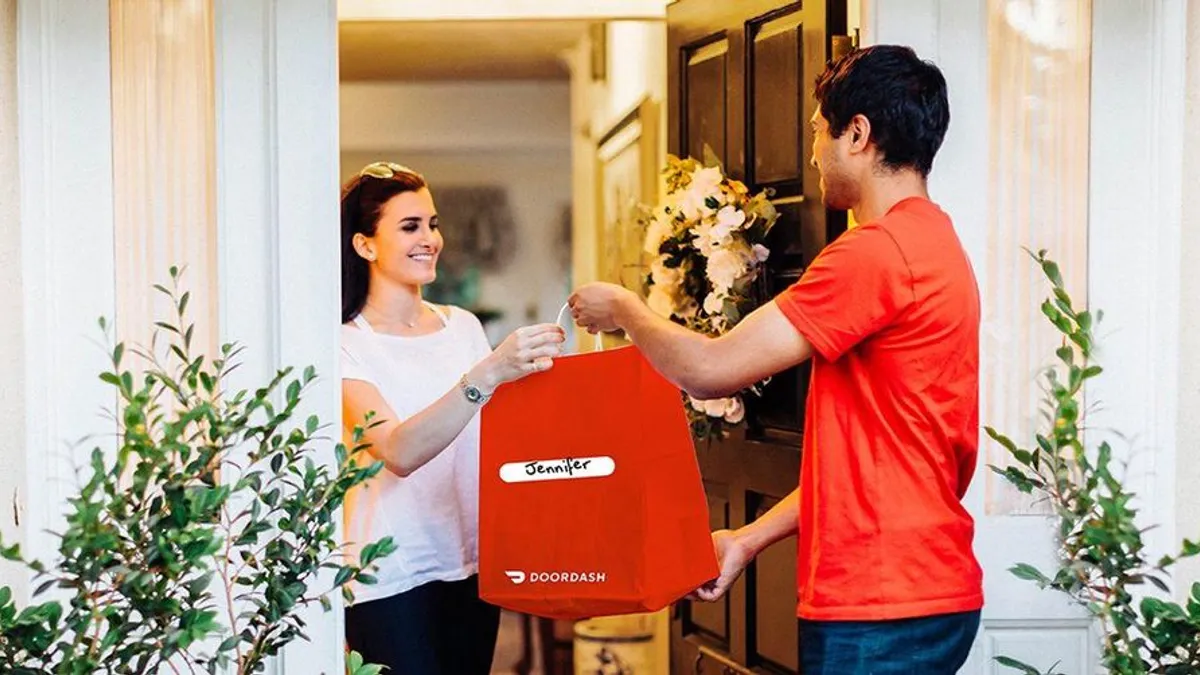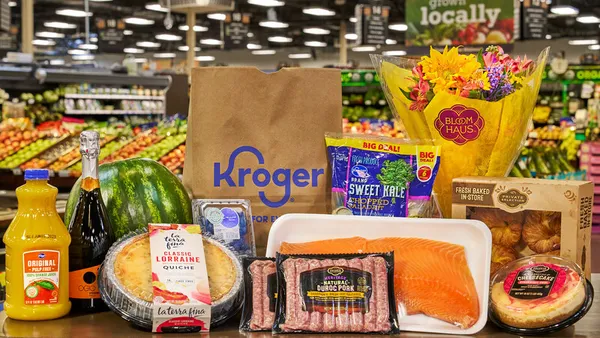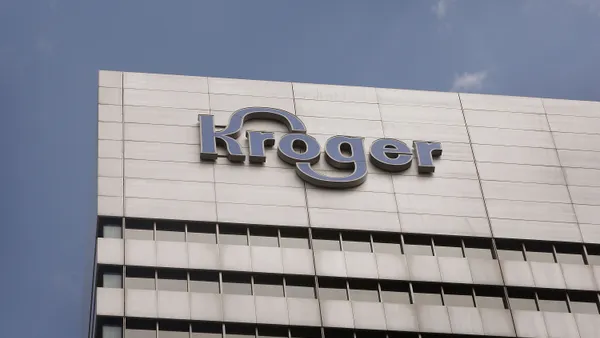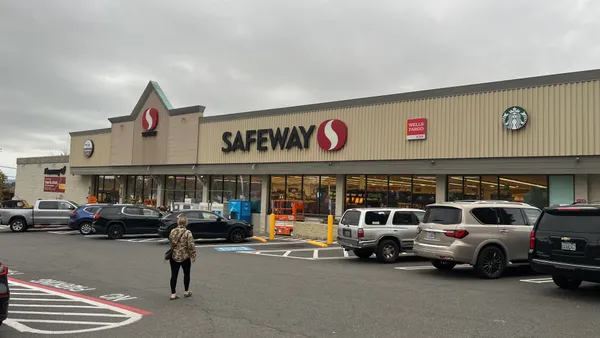DoorDash’s convenience and grocery delivery business saw slower growth during the fourth quarter of 2022 than it did earlier in the year, but continued to expand at a quicker rate than the e-commerce company’s core restaurant-delivery operations, CFO Prabir Adarkar said Thursday during an earnings call.
The convenience and grocery business grew 60% during the quarter compared with the same period in 2021, a figure that was down from more than 80% during Q3 but still “meaningfully higher” than the restaurant category, Adarkar said. Meanwhile, DoorDash’s third-party U.S. grocery operations doubled year-over-year during both quarters and have become more profitable, he said.
“[W]e believe we will continue to drive outsized growth in all of these areas that we're investing behind and continued margin improvement,” Adarkar said.
Adarkar added that a growing number of DoorDash’s customers are coming to the service initially to order items from companies other than restaurants, noting that “there might be customers out there that didn’t find the restaurant they were looking for. And now they find DoorDash interesting because their favorite grocery store, their favorite convenience store is on the platform.”
DoorDash is also seeing early indications that customers who order from restaurants as well as establishments that don’t fall into that category place orders at a higher rate, Adarkar said, meaning that “both of these things are important reasons for us to continue building a multi-category in order to be all things local commerce for our cities.”
The delivery technology company generated revenue of $1.8 billion during Q4, an increase of 40% from the $1.3 billion in revenue it recorded during that period in 2021. For all of 2022, DoorDash had revenue of $6.6 billion, a 35% jump over 2021, when the figure was $4.8 billion. Despite taking in more money, however, the company laid off about 1,250 workers last November as it grappled with rising costs.
DoorDash began offering grocery delivery service in August 2020, as the company sought to take advantage of the surge in shopper demand for grocery delivery spurred by the pandemic. The company has continued to add to the list of food retailers it partners with as it competes with companies like Instacart and Uber to provide e-commerce support to food retailers.
Grocers have been taking steps to reduce their reliance on third-party companies to manage their delivery platform and logistics, posing a challenge for DoorDash and its rivals. This week, for example, regional grocery chain Heinen’s said it would no longer work with Instacart and plans to roll out its own online grocery service on Feb. 22.
DoorDash also announced this week that President and Chief Operating Officer Christopher Payne will retire from his role and be replaced by Adarkar. In turn, Ravi Inukonda, who has been DoorDash’s vice president of finance and strategy since 2018, has been named CFO, the company said. Both promotions take effect March 1.
Payne, formerly CEO of social search company Tinder, has served as COO of DoorDash since January 2016 and became president in May 2021. Adarkar has been DoorDash’s CFO since 2018, when he joined the company from Uber, where he was a finance executive.












